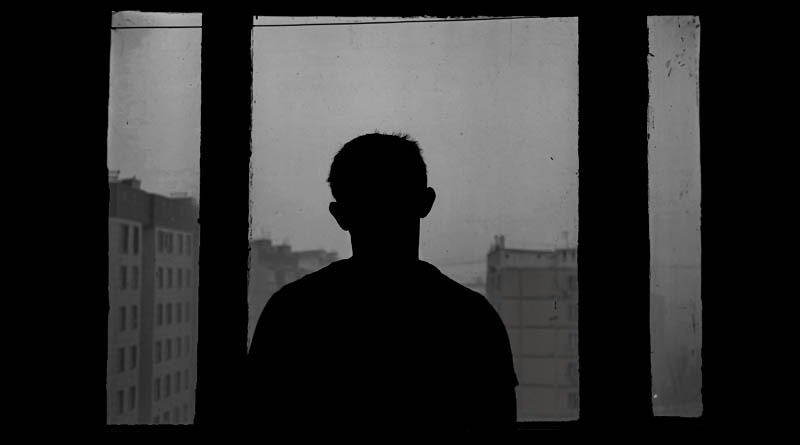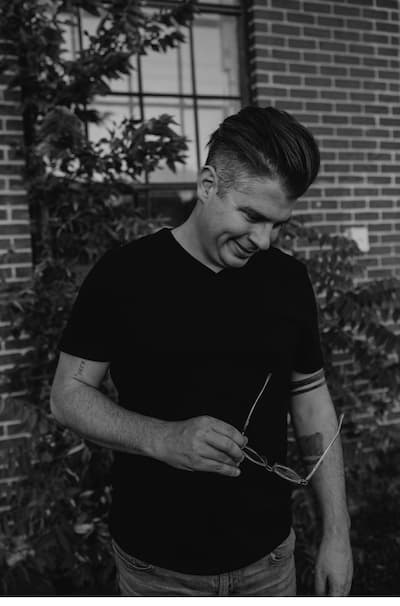
Trauma, Beliefs, and the Autistic Self
By Sean M. Inderbitzen LCSW
Trauma’s Effect on the Brain
Trauma is a bit like a knife that cuts us from the inside out. In my work with the varied survivors of human horrors like rape, domestic violence, abandonment, stabbings, and more, what I’ve come to realize is that it greatly tears apart who we think we are. Perhaps trauma’s greatest impact in my own life has been how it has shaped my concept of Sean. The self as discussed in prior posts is not monolithic, rather it is composed of parts whether one has an autistic nervous system or not. And what I have been coming up against in the course of my life again, and again, and again…is how trauma influences beliefs.
Trauma & Beliefs
Beliefs are propositions we accept about the universe and how it functions often in relationship to self. Now this is important because as one of my clinical mentors (Sherri Paulson LCSW) states, “Trauma is just a reflection of self wrapped in emotion”. So trauma works a bit like an amplifier for the darkest parts of our traumatic experiences.
Take for instance a client’s trauma, from childhood which involved repeated alienation by his father. My client was the son of a pastor, with a mother who had her own mental health issues. This pastor was incredibly money driven and worked somewhere in the ballpark of 70 hours per week, likely as a result of his own trauma. When the father would come home, he would often take out his frustration on his wife, and my client. My client would approach his dad about something, and the father’s response was to scream. Accompanying this screaming the father would pick up my client by the shoulders, lift-up and throw him across the room until his torso hit a wall. Often with the thud would be tears, and whimpering which was only met by further screaming. So gradually my client learned to be quiet for the sake of his survival.
The beliefs which emerged for my client was that, “I am not worthy of love” and “I am responsible for my suffering”. A belief that when projected inward towards the self resulted in feelings of thinking he was overweight when he was not, an impulse to try and find a partner to make him worthy of love, and a deep, deep self-hate. Thus, beliefs become a powerful engine in shaping how we view the world all from early experience. For this client, we might think that exercise is a healthy alternative for someone who wants to lose weight. The problem with this is that he does this not to improve his image but as punishment for himself for relationships which failed which he perceives as his own fault. So rather than cutting he runs. Likely 10-12 miles per week, he takes out that guilt from that belief on his body as a form of punishment to indulge these parts of self which tell him, “Of course you aren’t worthy of love”.
The Impact of Guilt
Thus, this belief of “I am not worthy of love” wraps itself in guilt and pain as a response to a relationship which failed over a year ago, and serves as a catalyst for self-harming behavior that others might perceive as healthy behavior. The challenge for this autistic traumatized person I work with is multifaceted. There is the layer of the guilt for the failure of the relationship (partially his responsibility), which likely is born in that early childhood when his torso would meet walls and he was repeatedly taught through incessant screaming it was his fault this was happening. Because with children beliefs are about the self, and this client who is now an adult still carries those beliefs from 7 years old. Those parts which learned at an early age for him that “the bad things which happen to me are my fault”, lives on still as a seven year old shaping increased sensitivity to textures and sounds, and beliefs about others.
Those parts also tend to drive this self-punishing behavior of running, which works to both feed the guilt, and simultaneously indulge that perception of self as overweight. By running, stepping on the scale each morning, and seeing the number rise and fall the guilt increases. Thus the guilt stores not only in the limbic system of the brain, and the amygdala, but also in the central nervous system. The trauma stores in the calves as they tighten to help the foot push off as my client runs. These beliefs of “I am not worthy of love” and “I am responsible for my suffering”, tend to affect how my client behaves and sees themselves. He sees himself as “fat”, even though that may not actually be the case in the eyes of others. Whether this is his autism, or body dysmorphia, or perhaps a combination of both results in a distorted view of himself by his parts.
Views of Others
In addition to how these beliefs shape perceptions of self, these distorted self projections shape our views of others as well. For example, my client works as a social worker with domestic abuse survivors. In this work he tends to take in their stories through this lens of “I’m not worthy of love” and “I’m responsible for my suffering”, and to begin to assume the worst about others. He has seen some of those he works with murdered and take their own lives, and naturally might think he is a bad social worker. Thus it becomes easy for these beliefs and guilt to become self-reinforcing, and for him to project these early formed beliefs about the wickedness of himself towards others. Even though my client is neither wicked nor to blame for the trauma inflicted on him by his father, who likely suffered his own trauma. So naturally when he tries to date, he perceives the worst when he is rejected by the women in which he is interested. Those self-blaming parts tend to be louder than the reasons he is given by those women: “They aren’t single”, “They don’t want kids’ ‘, or they, “Have different values”. Instead for him its reasons like “my social skills suck because I’m autistic”, “I’m fat”, or “I’m not good enough”. Those negative beliefs wrapped in guilt and shame are the ones he hears.
Working Through the Trauma
These beliefs for his autistic brain are a bit difficult to shake because they effect how he perceives himself. As my own therapist explains it to me, our brains are a bit like nets. They are really good at capturing negative beliefs, and really poor at capturing positive beliefs. Which is why she recommends gratitude journaling, because as research demonstrates again and again, if we intentionally focus on those positive things, those weak nets get stronger. And so it is for my client. Him beginning to believe the best in people will likely take time. Working with victims of domestic violence, being privy to death and violence makes that a much longer journey for him I suspect. Those self beliefs of “I’m not worthy of love” and “I’m responsible for my own suffering”, tend to be wrapped in guilt and shame for him. The resulting behaviors as stated before look a bit like self-perception of being fat, and a compulsive need to find someone to validate his very existence. He knows full well how these beliefs affect him, but linking those beliefs to the many positive things in his life which prove otherwise is a long road… A road worth walking.

Sean is a Behavioral Health Therapist, and lives with an Autism Spectrum Disorder. He has a caseload with 33% of his patients that live with ASD and varying comorbid psychiatric conditions. Prior to being a mental health clinician, he was a Vocational Rehabilitation Specialist for Wisconsin Division of Vocational Rehabilitation for 3 years. He was also appointed by Governor Walker to the Statewide Independent Living Council of Wisconsin. He is an incoming member to the Motivational Interviewing Network of Trainers, and provides training on motivational interviewing, ASD and employment, and ASD and comorbid psychiatric conditions. For more info, find him at Seaninderbitzen.com or on LinkedIn, and look for his new book Autism in Polyvagal Terms: New Possibilities and Interventions.




